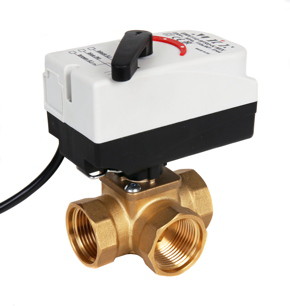Back to basics

Hydronic system balancing is one of the more complicated tasks faced by building services engineers and historically heating and chilled water systems were balanced by specialist engineers only.
However, in recent years with advances in valve technology and the introduction of dynamic balancing products onto the market, there has been an increasing opportunity to simplify the process, cut costs and improve consistency - once the new technologies have successfully been adopted.
A lot has changed with valve technology in recent years, sometimes in this industry technology leaps forward so much that it leaves a skills gap as individual specifiers and engineers struggle to keep pace.
At Albion we believe a back to basics approach works well and that system balancing should be as simple as possible.
The key to a successful commissioning project is to ensure the commissioning engineer is involved early in the decision-making process. The commissioning process can be complex enough without an engineer having to inherit poor design and installation practices from the outset.
The wrong product selection, unnecessary inclusion and systems that have been inaccurately installed can cause an unnecessary headache.
Although products such as the pressure independent control balancing valves (PICV) or differential pressure control valves (DPCV) are fast becoming standard in commissioning projects, not all heating engineers are familiar with them.
Albion’s guide ‘Expert Ease’ offers a refresher on valve technologies. It shows some of the modern approaches and gives the user a chance to clarify, consider and also question what they find at commissioning time on installations.
In a nutshell commissioning is all about balance. This in turn means a comfortable living and working environment for occupants. With poor balance and control the system swings become too great, which causes extreme temperatures in our and ultimately energy wastage.
PICVs help create a much narrower thermostatic range in heating systems, for example, which effectively stabilizes the temperature and reduces the likelihood of surges outside the comfort zone. Meaning the system does not work earlier than needed and can also reduce output sooner rather than overshoot the desired set-point temperature.

A properly balanced variable volume system can only be achieved with the correct set of dynamic balancing and control valves, these ensure the correct distribution of flow throughout the whole system, irrespective of pressure changes or the partial system load that will inevitably occur for the vast majority of the building’s operational life.
If the correct balancing of the system is not established, this will result in unequal distribution of the flow so that there will be a surplus effect in some of the terminals, and not enough in others. The result of this is that the desired heating or cooling will not be ensured in all parts of the installation.
Albion recommends the use of DPCVs, which are extremely efficient in helping to stabilize the temperature in heating systems.
The DPCV is set to maintain a steady differential pressure, under dynamic balancing conditions, which ensures flow cannot exceed a desired rate. It therefore helps reduce both energy consumption and the risk of noisy vibrating pipes, while simplifying commissioning.
Thermostatic radiator valves (TRVs) are self-regulating and control the water that enters a radiator and ultimately help maintain a desired room temperature. TRVs come with lockable, tamper-proof temperature settings ideal for commercial environments.
In installations requiring balance in a specific location, such as a meeting room, PICVs can be used. These are particularly effective on air conditioning systems and FCUs that can overheat the space or emit chilly blasts when overcirculating chilled water in the system.
Les Littlewood is sales director at Albion Valves.







